Evaluating Country Programmes - OECD Online Bookshop
Evaluating Country Programmes - OECD Online Bookshop
Evaluating Country Programmes - OECD Online Bookshop
You also want an ePaper? Increase the reach of your titles
YUMPU automatically turns print PDFs into web optimized ePapers that Google loves.
<strong>Evaluating</strong> <strong>Country</strong> <strong>Programmes</strong><br />
70<br />
Box 2.2. Different Definitions of Evaluation Criteria<br />
Used in CPEs or CPE Guidelines<br />
Efficiency: “… concerns the organisation and management of the programme.<br />
With regard to organisation, the focus is on factors which influenced decisionmaking<br />
in the Netherlands regarding the composition of the programme. With<br />
regard to management the focus is on the capability to guide and monitor the preparation<br />
and implementation of development activities.”<br />
(Netherlands/India, 1994: 50)<br />
“… assesses whether the activities have been carried out efficiently in order to<br />
yield the project results. Have the means of the project been efficiently transformed<br />
through the project’s activities into the various project results? Could the<br />
same or similar results have been achieved at lower cost?”<br />
(EU Commission, 1995, reproduced in Maxwell et al. Ethiopia: 2)<br />
Effectiveness:<br />
“… the contribution to [the country’s] macro-economic self-reliance, poverty<br />
alleviation, and the sustainability of project results.”<br />
(Netherlands/India, 1994: 50)<br />
Relevance:<br />
“… refers to how the project or the programme is related to the poverty profile<br />
and the scope for interventions identified.”<br />
(Danida/Nepal, 1995: 58)<br />
Sustainability:<br />
“… is judged from the way in which institutional arrangements are made to<br />
ensure a lasting impact on poverty alleviation”<br />
(Danida/Nepal, 1995: 58)<br />
One of the most extensive discussions of sustainability in the particular context<br />
of technical assistance is provided by UNDP:<br />
“Technical assistance, especially in TA projects, is an imprecise and variable<br />
state. It can be gained or lost as a result of changes in government policies or imperatives<br />
or through technical advances or obsolescence. It is, therefore, more often a<br />
promise than a fact; an expression of expectations at the time the judgement is<br />
made…<br />
“Technical assistance is an instrument of change. That change begins in the<br />
minds of men [sic], through education and training. For that change to endure and<br />
prosper, it needs to be institutionalised… A development project is said to have<br />
reached the threshold of sustainability when its objectives have been fully<br />
achieved, essential trained staff are appointed on a permanent basis, and all<br />
project equipment is functioning well with sound maintenance practices in place.”<br />
(UNDP/Myanmar, 1994: 53-55)<br />
<strong>OECD</strong> 1999



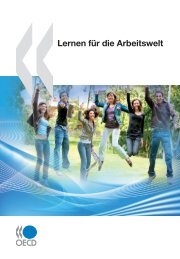

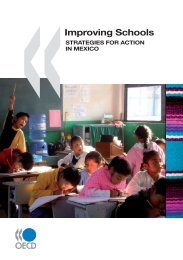
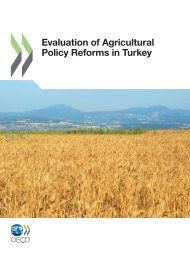
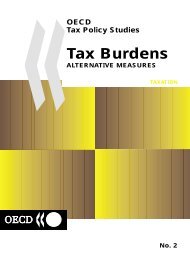
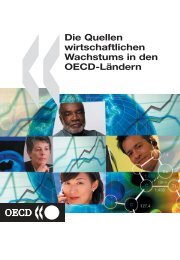
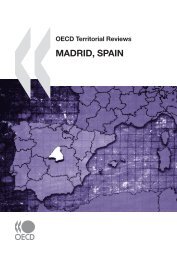


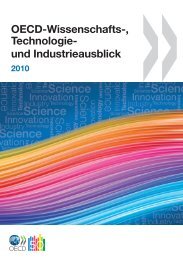
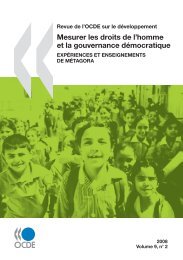
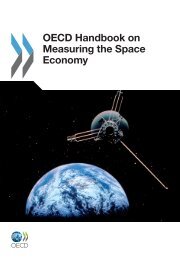
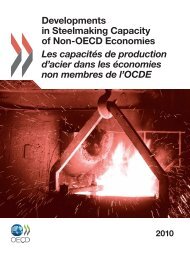
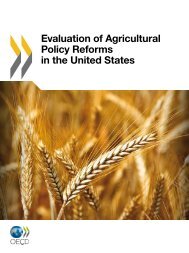
![CQE=U]^\]Z: KAZAKHSTAN - OECD Online Bookshop](https://img.yumpu.com/3915768/1/190x253/cqeuz-kazakhstan-oecd-online-bookshop.jpg?quality=85)